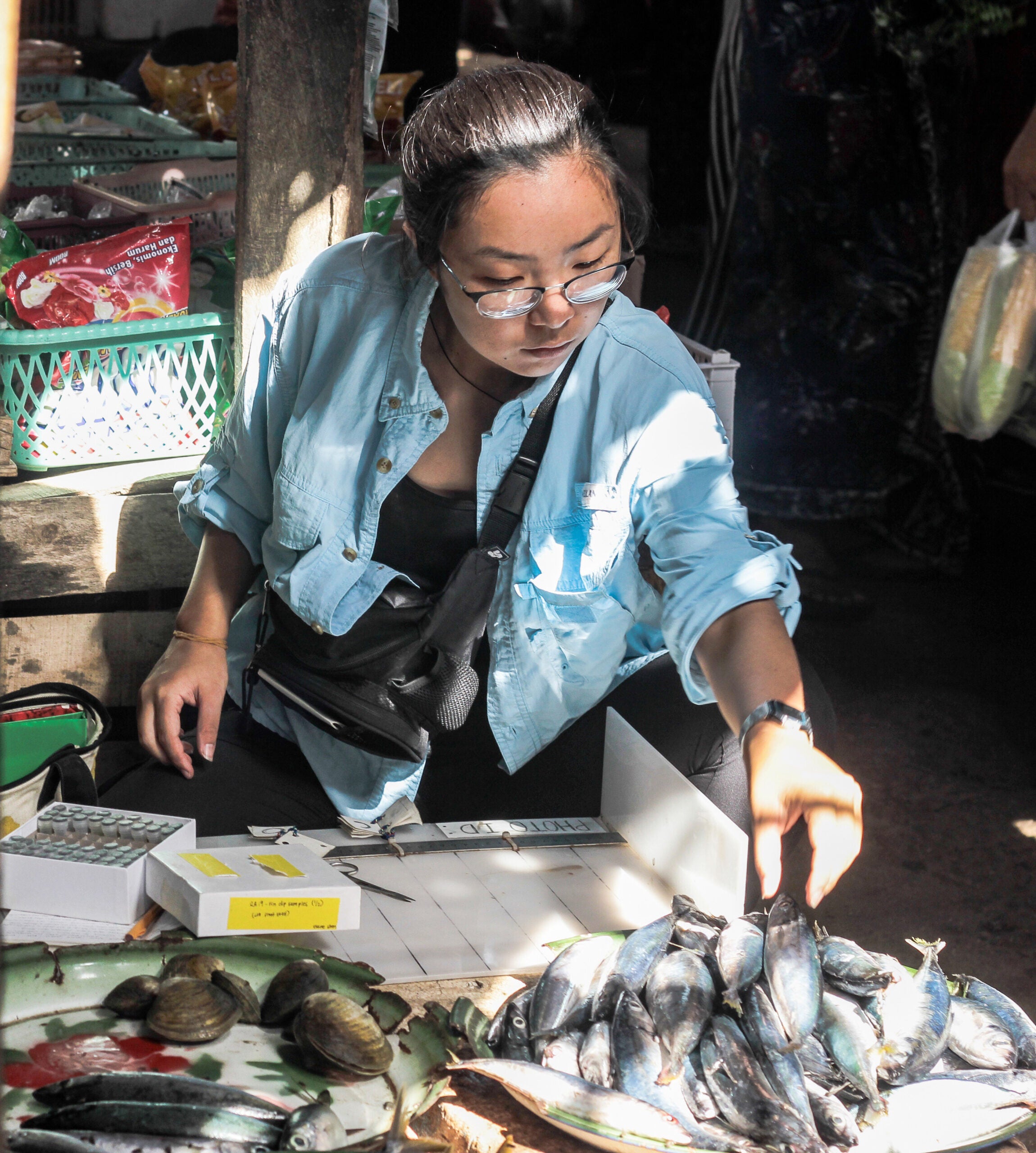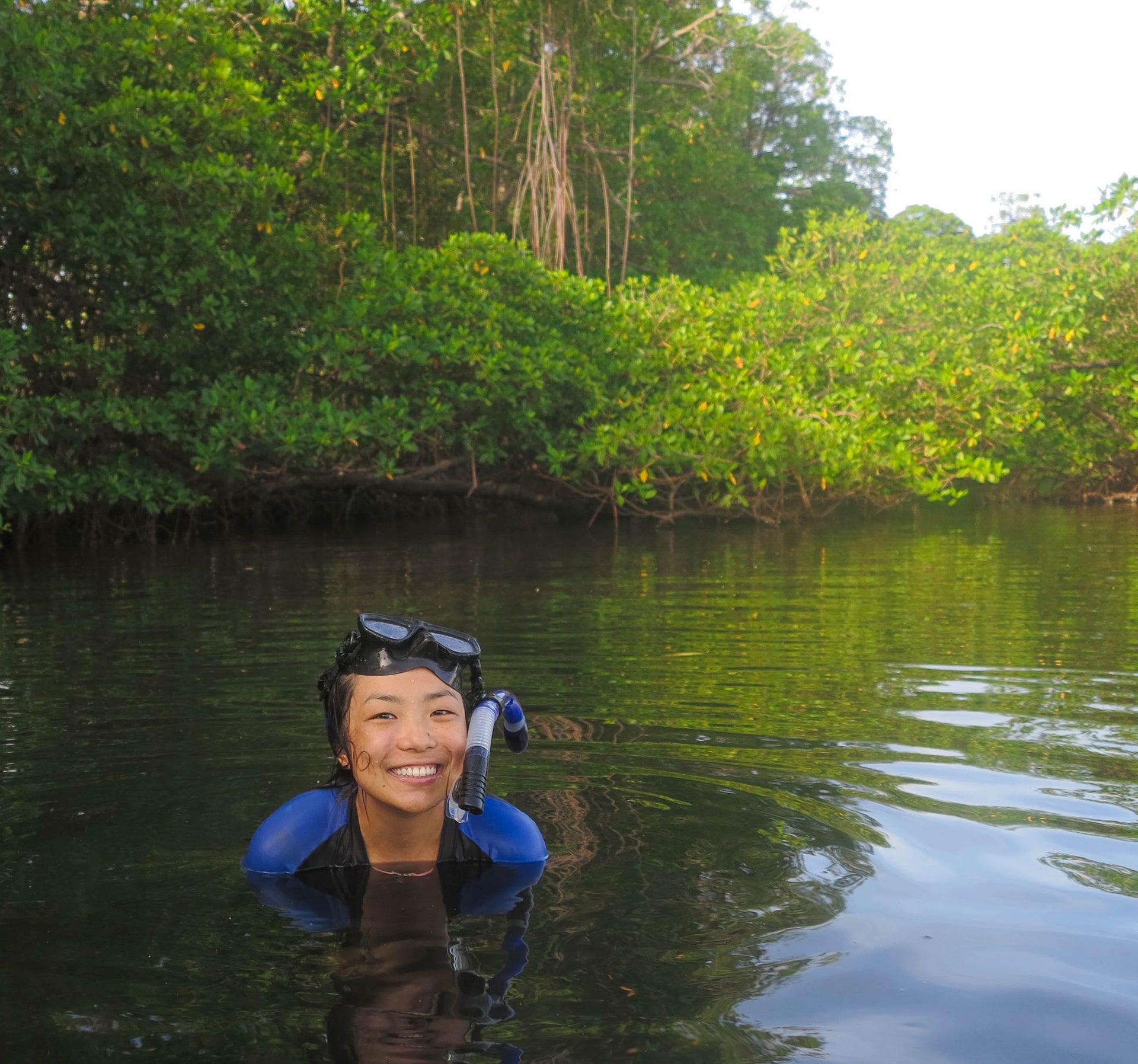KINGSTON, R.I. – March 3, 2021 – University of Rhode Island doctoral student Elaine Shen grew up fishing along the Texas coast with her father and eating their catch for dinner. The hours spent waiting for a fish to bite sparked her sense of wonder about marine life, even though the area was heavily industrialized.
“I thought it was totally normal to drive by chemical plants, oil refineries, and large petroleum facilities to get to our fishing spots,” said Shen, a native of Houston. “I grew up in a place where the ocean is clearly used for its resources and the coastline is an unapologetic reflection of oil and gas.”
As a doctoral student at the University of Rhode Island, Shen has taken her curiosity about the marine environment halfway around the world to Indonesia, where she is studying coral reefs in one of the most biodiverse marine environments on Earth. Using environmental DNA from the shed skin, scales and feces of wildlife collected from seawater or sediment samples, she is learning about the variety of life that visits the reef ecosystem.

“A lot of this biodiversity is missed in visual-based diver surveys, which is why using a DNA or genetic-based approach may help provide a better estimate of the number of species present in these ecosystems,” said Shen, who earned a bachelor’s degree from Rice University. “This information is important for the conservation and management of marine species, since so many people in Indonesia depend on the fisheries that coral reefs sustain.”
In just a few liters of water, she has found hundreds of thousands of DNA sequences that can be identified to particular species, from small unicellular eukaryotes and green algae to snappers, groupers and sharks.
“There is still a lot of diversity captured in these environmental DNA samples that remain un-classified or under-classified in current genetic databases, however,” Shen said.
The use of environmental DNA puts the URI doctoral student at the forefront of applying bioinformatics to questions about theoretical ecology. It also helps her collaborate with experts at Indonesian universities who want to learn about these new techniques.
“I work with early-career scientists and students and teach them bioinformatic skills that I’ve learned,” she said. “In exchange, they share their knowledge of Indonesian coral reefs, fisheries, fish genera, and species.”
This reciprocal collaboration is meaningful and exciting to Shen, but it also showcases Indonesia’s lack of financial and informational resources. “My research has really highlighted the inequities to accessing biodiversity research more globally because there isn’t the same amount of knowledge, support and funding,” she said.
By acknowledging that most biodiversity research around the world is conducted by Western scientists, Shen sees her role in Indonesia as training local scientists in bioinformatics to build their skill set so that they can undertake these projects themselves.
She also recognizes that she can help to foster diversity, equity, and inclusion back home in the U.S., so she is active in a number of diversity programs at URI. She serves on a diversity committee for URI’s College of the Environment and Life Sciences, advises the student group Seeds of Success, and is a member of the Women of Color Network, among other diversity initiatives.
“I am continuously learning how to be a better advocate and colleague to my peers,” she said. “My goal is to create the infrastructure and foundation for graduate students to share their voice, dig deep, and think critically because everyone has an important perspective to share.”
Shen’s research has been recognized with a National Science Foundation Graduate Research Fellowship and The Nature Conservancy’s Global Marine Initiative Student Research Award.

